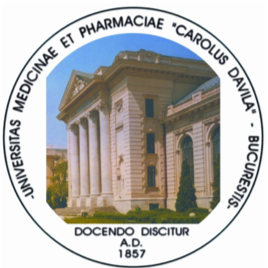📚About the Program
The undergraduate doctoral program in podiatric medicine, leading to the degree of DPM, is the first of its kind in the Quebec and Canadian university system as well as in the entire Francophonie. It was authorized by the Quebec Minister of Education, Mr. Pierre Reid, in November 2003. UQTR also plans to gradually develop research and continuing education related to this discipline.
The proposed program is modeled largely on American programs in podiatry and on the accreditation standards of the Council on Podiatric Medical Education, while including certain adjustments that reflect the field of competence of podiatry in Quebec. It lasts 4 years and takes place over 10 sessions, with the student having to continue his clinical training in June of the third year and in the summer of the fourth year. It comprises 195 credits, including theoretical training of 1770 hours and practical training of 2313 hours, for a total of 4083 hours. This program is limited to 25 places, taking into account the availability of resources.
Program Objectives
The program prepares the student for the autonomous exercise of the profession of podiatrist, by the progressive mastery of the skills which enable him to perform any act aimed at identifying, treating and preventing local foot conditions which are not system diseases.
The program allows the student to acquire the skills of a first contact healthcare professional. As such, the future podiatrist must be able to detect the symptoms of various systemic conditions that first appear in the foot and, if necessary, to carry out the appropriate consultations and referrals.
The student learns to intervene with patients at various stages of life and in various contexts: in industries, in sports and physical activities. He is prepared to practice in private clinics, in long-term care hospitals, in short-term hospitals and at home. At the end of his program, it is possible for the graduate to engage in one of the specialties of podiatry such as: biomechanics, podiatric surgery, podiatric orthopedics, sports podiatry, pediatric podiatry, podogeriatrics.
Throughout his training, the student learns to justify and situate all the professional acts he performs, by considering various dimensions such as: scientific rigor, effectiveness and quality of treatments, quality of the relationship therapy, deontological and ethical responsibilities. He develops his capacities for analysis, synthesis and critical discernment within the practice. They learn to communicate effectively with their patients, to engage socially in all aspects of their profession, to collaborate with other health professionals, to contribute to the development of theoretical and clinical knowledge through research, to learn by himself with a concern for continuous updating of his skills.
The program involves the acquisition of basic skills in the biomedical sciences and specialized skills in podiatry. Practical training occupies a large place in the program. It is carried out in various places: in university podiatric clinics, in private podiatric clinics as well as in its affiliated hospitals and health centers. Part of the theoretical training in podiatry is also carried out with the collaboration of the professors of this establishment.
Show less













